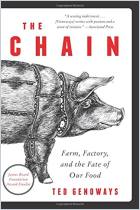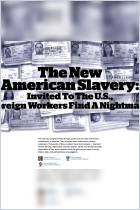Join getAbstract to access the summary!

Join getAbstract to access the summary!
John Drescher
The Forgotten Lessons of the Hamlet Fire
The Assembly, 2021
What's inside?
A 1991 fire at a chicken processing plant killed 24 workers, but the reforms it triggered have faded away.
Recommendation
This concise, well-reported story offers a vivid picture of the negligence and failures that resulted in the deaths of 25 workers in a fire at a North Carolina chicken processing plant in 1991. Surviving workers and community members still struggle with the aftermath. Seasoned journalist John Drescher covered the fire at the time as a local reporter and revisited it recently for this story. He reports that any safety improvements made after the fire were inadequate or have since fallen short or faded away. Those responsible for risk management or workplace health and safety, as well as top executives, policymakers and journalists covering local government and business, should take heed.
Summary
About the Author
John Drescher is a contributing editor to The Assembly, former executive editor of The News & Observer in Raleigh, NC, and a former editor at The Washington Post.






















Comment on this summary